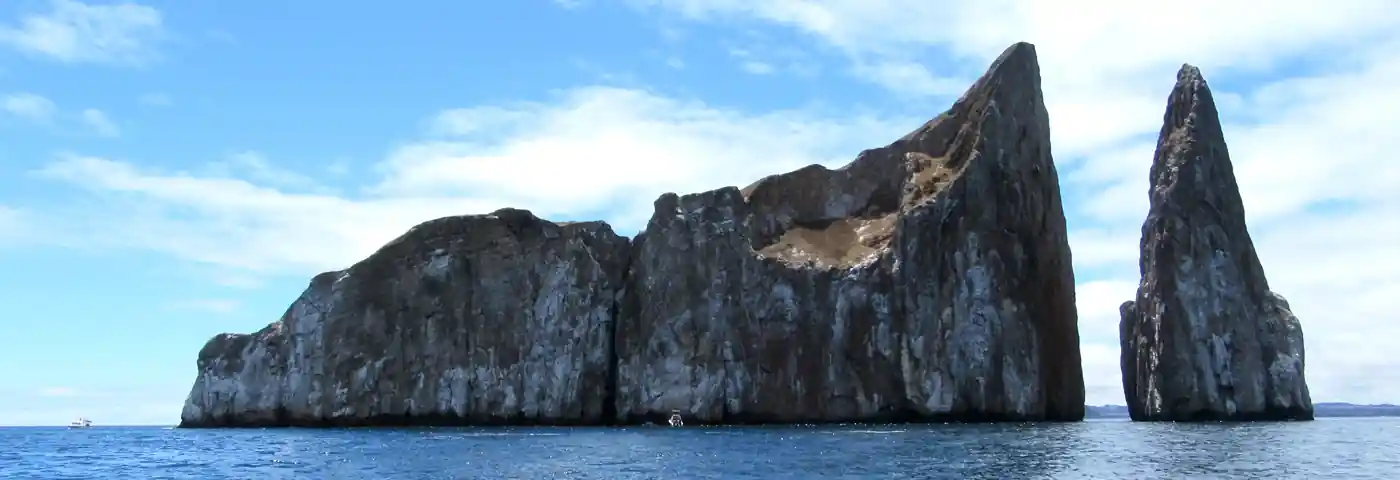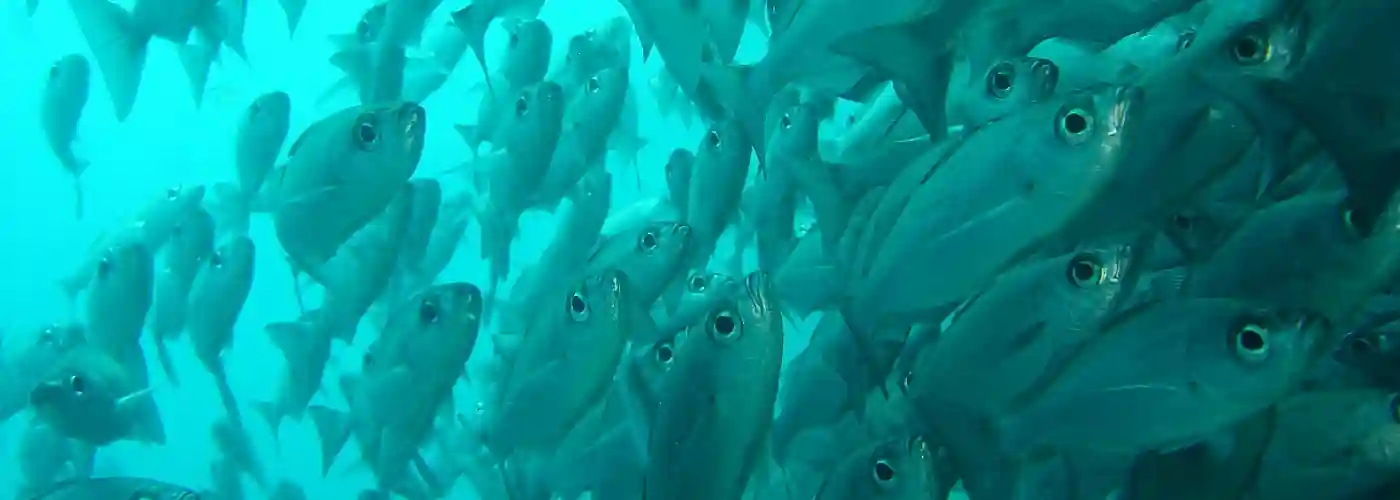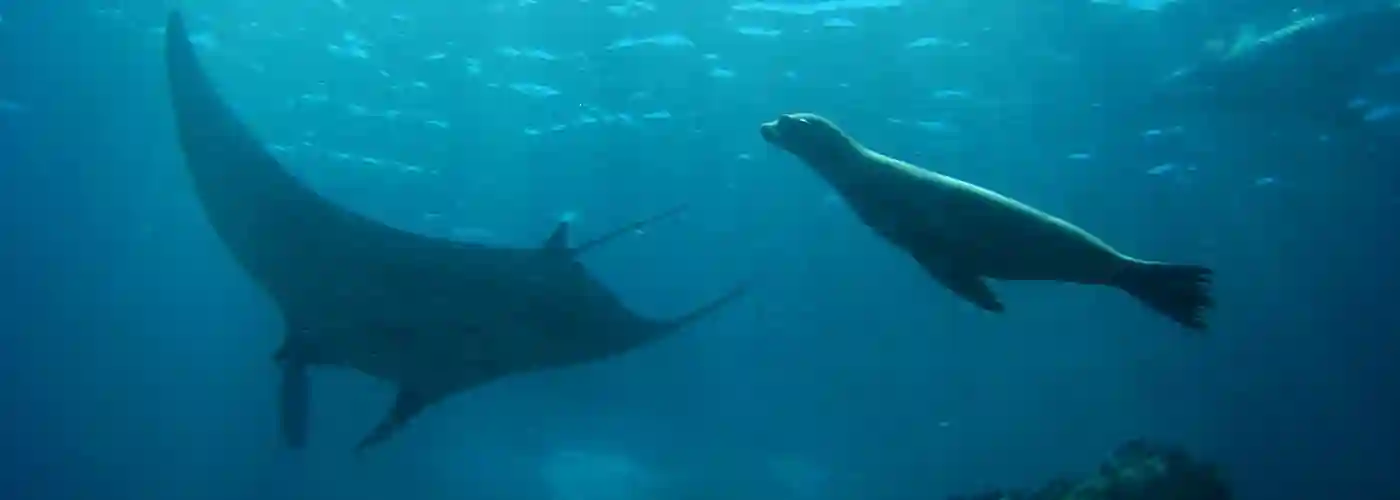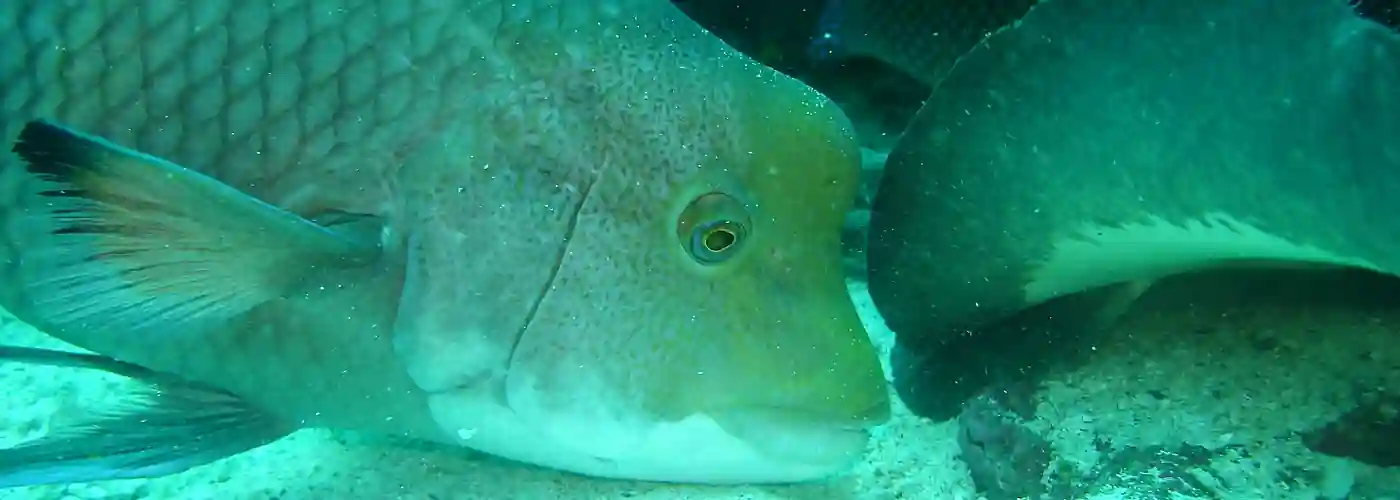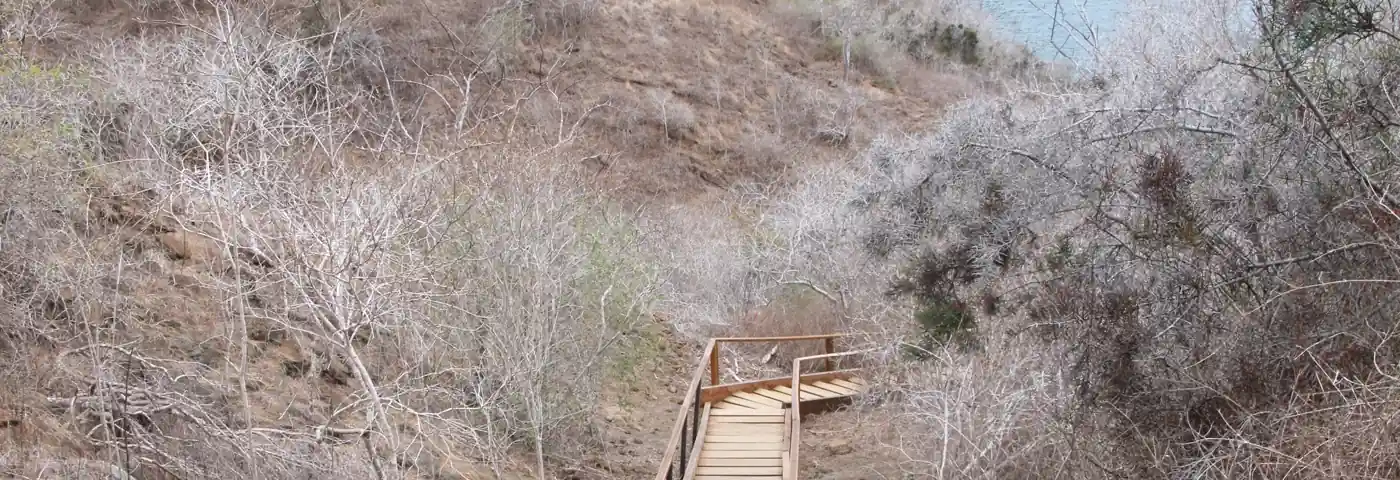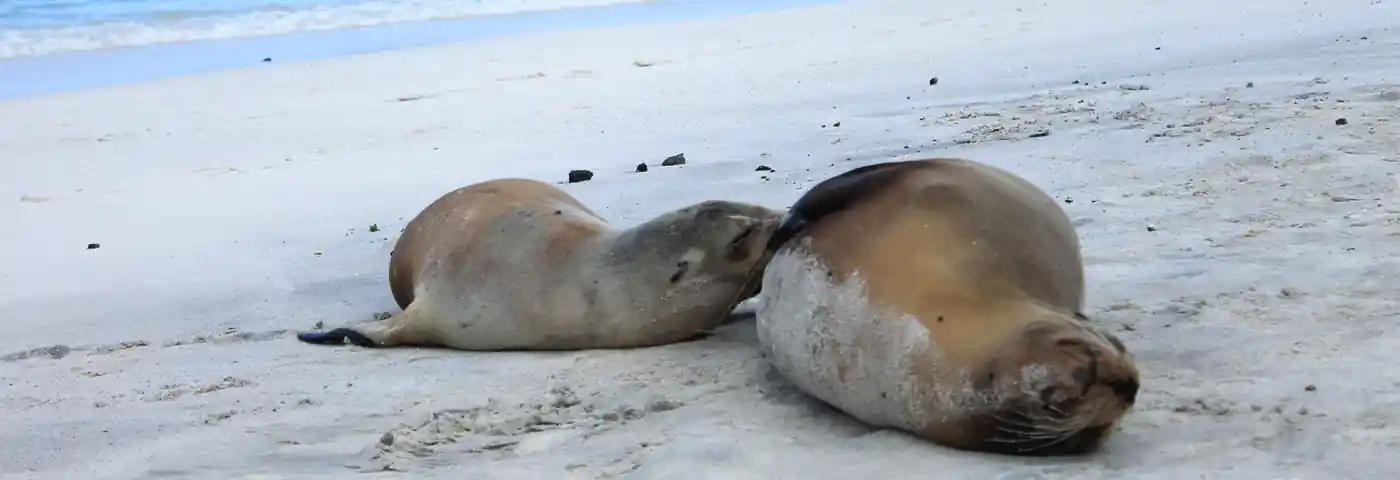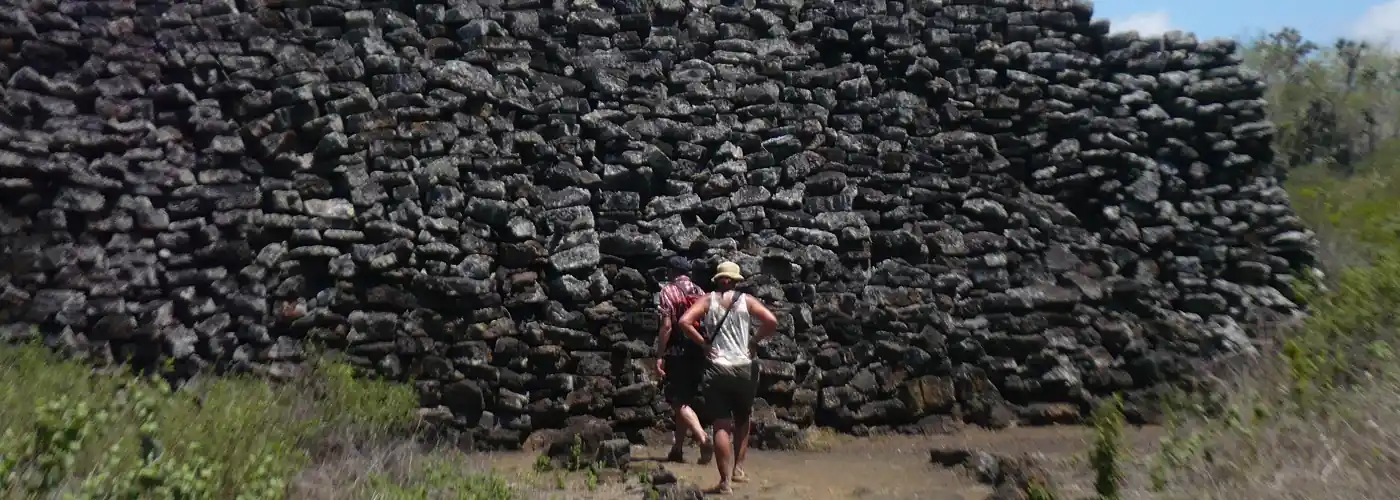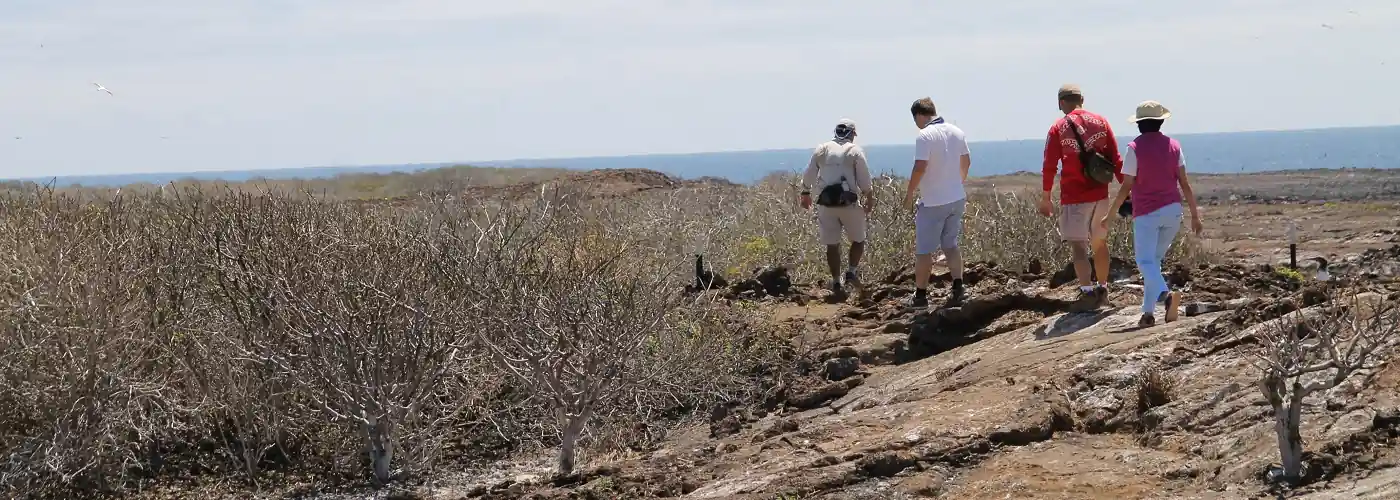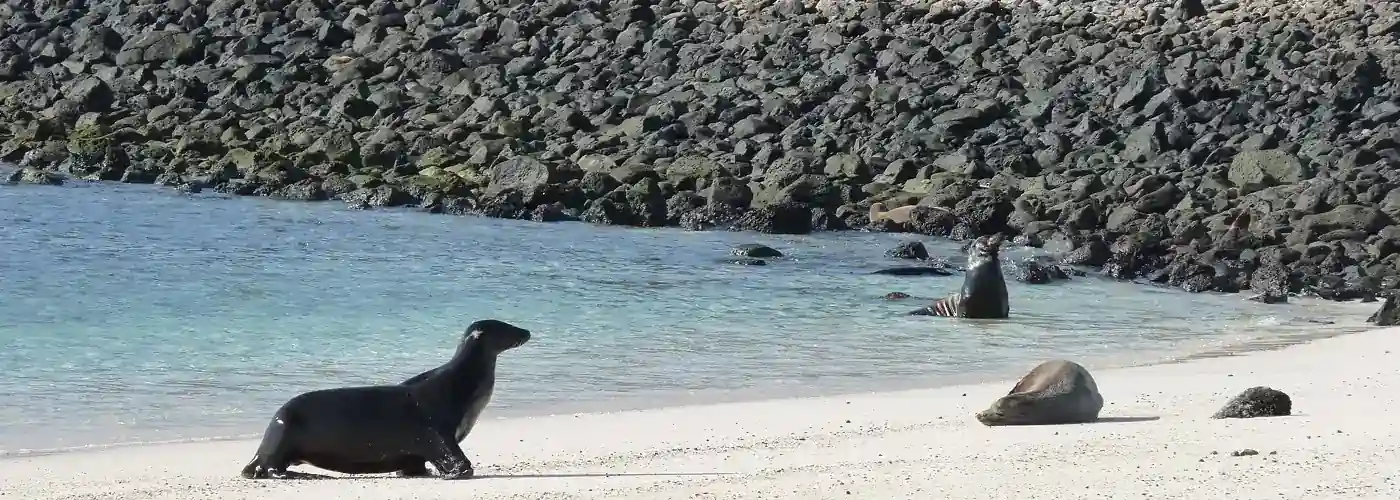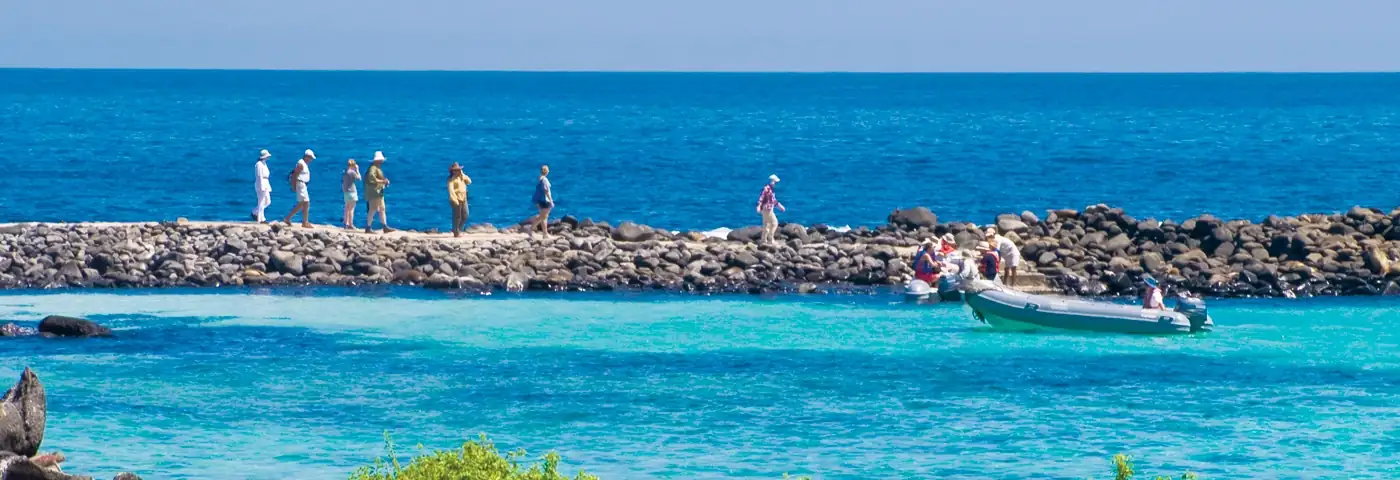8 days cruise yacht Elite – A8
Route A8 (Sat - Sat): Eastern and Western Galapagos Islands
- 7 days
- 1-16
Highlights of the tour
- Giant tortoises in their natural habitat
- Hikes through unique landscape
- White-tipped Reef Shark
- Rare water birds
Overview
During this 7-night cruise with the luxury yacht Elite you visit for example the islands San Cristobal, Santa Cruz, Rabida and Fernandina. Enjoy amazing beaches with great snorkeling possibilities and let yourself astonish by the variety of flora and fauna.
On board, you can enjoy the luxury facilities, tasty meals, relax in the pool or in your comfortable cabin.
Itinerary
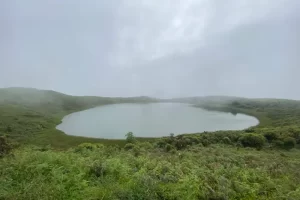
Afternoon – El Junco lagoon. The lagoon “El Junco” is a large pond or small lake and one of few sweet waters on the Galápagos Islands. In fact, it is a filled crater of an extinct volcano. Here you can find a unique ecosystem of waterbirds with, for example, herons and duck species. The walk from the port leads you through the highlands and its villages.
Meals: Lunch / Dinner
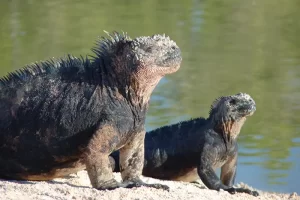
Afternoon – Dragon Hill. On Dragon Hill there are two main species that are most likely to be seen on any visit to the Galapagos, although not spaced too widely across the islands: Galapagos land iguanas and American flamingos. They climb a hill with huge Opuntia cacti where these “dragons” feed and breed. Although they are quite shy and difficult to capture, you have a fair chance to see the success of this project with your own eyes. The short trail crosses the coastal vegetation zone as well as the slightly higher dry zone with endangered tropical dry forest. In the warm and humid season in the first half of the year, everything turns green. Evergreen giant prickly pear cacti with internal reservoirs chose a different survival tactic in this dry climate than the leaf-dropping palo santo trees; in the end, both were successful. It’s also a very photogenic place, with stunning panoramas across the bay and onto a fascinating, steep volcanic spout of red lava that overlooks the area. Dragon Hill has become popular for its salty lagoons behind the beach; these contain seaweed and shrimp and attract seasonal foraging American flamingos. Dragon Hill is the best place on Santa Cruz to see them.
Meals: Breakfast / Lunch / Dinner
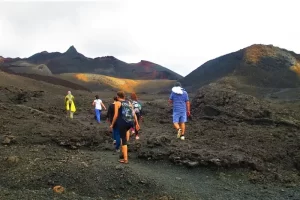
Afternoon – Wetlands, turtle rearing centre. The wetlands of Isabela Island can be found directly in front of Puerto Villamil. They consist of lagoons, marshes and mangrove forests and are home to a wide variety of unique bird species, such as the common stilt, the whimbrel, the Bahama duck and the moorhen. The wetland can be easily explored on foot along a path that winds through the marsh. Back in Puerto Villamil, visit the Arnaldo Tupiza Turtle Breeding Centre. Hundreds of Galapagos giant tortoises can be seen here. The number of giant tortoises on Isabela has declined sharply since the 16th century. The centre was established to preserve or save the species.
Meals: Breakfast / Lunch / Dinner
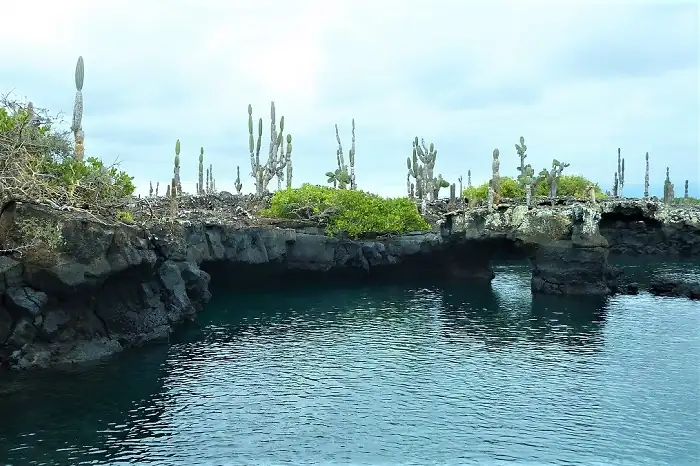
Afternoon – Urbina Bay (Isabela). Urbina Bay is located on the west coast of Isabela, between Elizabeth Bay and Tagus Cove. It is close to the base of the Alcedo volcano. The coastline underwent a major uplift in 1954, extending the shore for one kilometre. Here you will find corals, shells and many other calcareous organisms above water. Urbina Bay is home to the large and colourful land iguanas and giant tortoises of the Vulcan Alcedo population. There are also many Darwin’s finches to be seen.
Meals: Breakfast / Lunch / Dinner
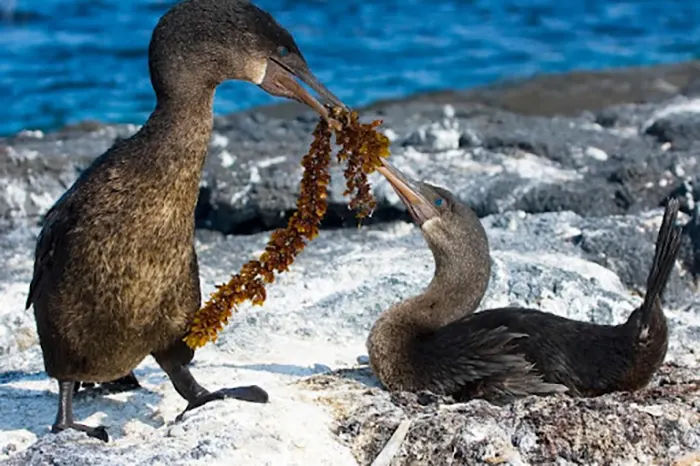
Afternoon – Vicente Roca Point (Isabela). During lunch, you will cross the Bolivar Channel for the last time to reach Vicente Roca Point, at the mouth of the seahorse-like shape of Isabela Island. Entering a dark cave under a spectacular arch, the echoes of the waves will accompany you. Just around the corner, the collapsed amphitheatre of the Ecuador volcano offers you another impressive view. The calm waters of the bay are well protected from the ocean waves. The water is quite cold, but an excellent place to snorkel among various species of sharks, penguins, puffer fish and seahorses.
Meals: Breakfast / Lunch / Dinner
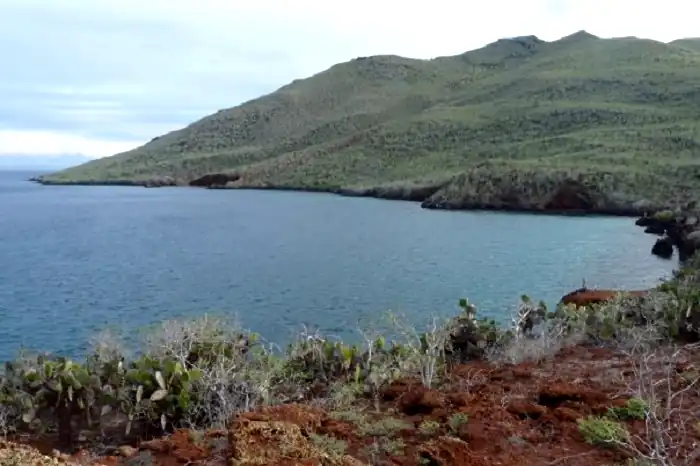
Afternoon – Bartolomé. The beautiful volcanic island of Bartolomé is one of the youngest islands and, in geological terms, was only recently formed out of fire. Even though lifeless at first sight, Bartolomé offers some of the wildest landscapes and the best panoramic views of the entire archipelago. To enjoy the postcard view of idyllic ‘Pinnacle Bay’, you must climb the stairs to the island lookout (114m/375ft). Enter a dramatic world of intimidating (albeit extinct) nearby spatter cones, craters and light lava drops spewed by fiery fountains. The Summit Trail is also ideal for watching sparse pioneer vegetation, such as lava cactus, struggle to take root in the bare, untouched lava fields.
Meals: Breakfast / Lunch / Dinner

Afternoon – Galapaguera. You will visit the Turtle Protection and Breeding Center in Cerro Colorado. This center was built to help increase the population of turtles on the island. The center has a large enclosure, a visitor center and a hatchery. Along the footpath it is possible to see different species of native and endemic plants, as well as birds such as the San Cristóbal mockingbird, the golden warbler and many species of finches and the Galápagos flycatchers.
Meals: Breakfast / Lunch / Dinner
Morning – Gianni Arismendy Interpretation Center (San Cristobal). The Interpretation Centre is located near the capital Puerto Baquerizo Moreno. It was opened in 1998 as part of the Interpretation and Environmental Education Project. Visitors can view exhibits on natural history, human history and conservation in the Galápagos Islands. Conservation efforts represent the movement to protect wildlife and the natural environment through population and tourist control. The Gianni Arismendy Interpretation Center has an outdoor area, audiovisual equipment and meeting rooms.
After this excursion, you will be transferred to San Cristobal airport for your return or onward flight.
Meals: Breakfast
- Included services
- All excursions and a daily activity briefing
- Bilingual (Spanish/English) National Park guide
- Double or single accommodation
- All meals and snacks throughout cruise
- Soft drinks and juices
- Cruise service officer
- Transfers on the islands
- Airport reception and assistance
- Captain’s welcome and farewell cocktail
- Supplied expedition gear
- Use of yoga mats
- Not included services
- International flight and Galapagos flight
- Entrance fee to Galapagos National Park (USD 200 per person, subject to change)
- Transit control card (USD 20 per person, subject to change)
- Airport transfers in Galapagos (if the flight is not booked together with the cruise)
- Wetsuit
- Soft and alcoholic drinks
- Tips
- Travel insurance and other personal expenses
notes:
Single supplement: 50%. The single cabin accommodates additional travelers who are part of odd-numbered groups and families. No single supplement applies. This cabin is not available for solo passengers.
Discount for children: 25% – applies per child (#1) when traveling with two adults. Children must be under 12 years old when they board the cruise. Not applicable on New Years’ Eve and Christmas departures.
Children of all ages are accepted on board, but parents are fully responsible and liable for their children throughout the cruise.
Christmas and New Years´s Eve departures: 10% surcharge, Single Supplement: 100%
All prices are subject to change if local tax increases or other circumstances beyond our control occur.
The itinerary is subject to change at any time due to circumstances beyond our control.
In order to rent a wetsuit, we will need your clothing size (S/M/L/XL) before your arrival in Galápagos. Standard wetsuits with a thickness of 3 mm are rented.
Hints
Ask us for children or group discount.
Price not valid for Christmas and New Years´s Eve departures.
All prices are subject to change if local tax increases or other circumstances beyond our control occur.
The itinerary is subject to change at any time due to circumstances beyond our control.
In order to rent a wetsuit, we will need your clothing size (S/M/L/XL) before your arrival in Galapagos. Standard wetsuits with a thickness of 3 mm are rented.
Travel Insurance:
To protect your travel investment, we highly recommend the purchase of travel insurance. Travel insurance is intended to cover medical expenses, trip interruption and cancellation, theft and other losses incurred while traveling domestically or internationally.
Visa and Entry Requirements:
Ecuador requires a valid passport (with a minimum 6 months validity). Contact your local embassy or consulate for the most up-to-date visa requirements.
Other interesting cruises
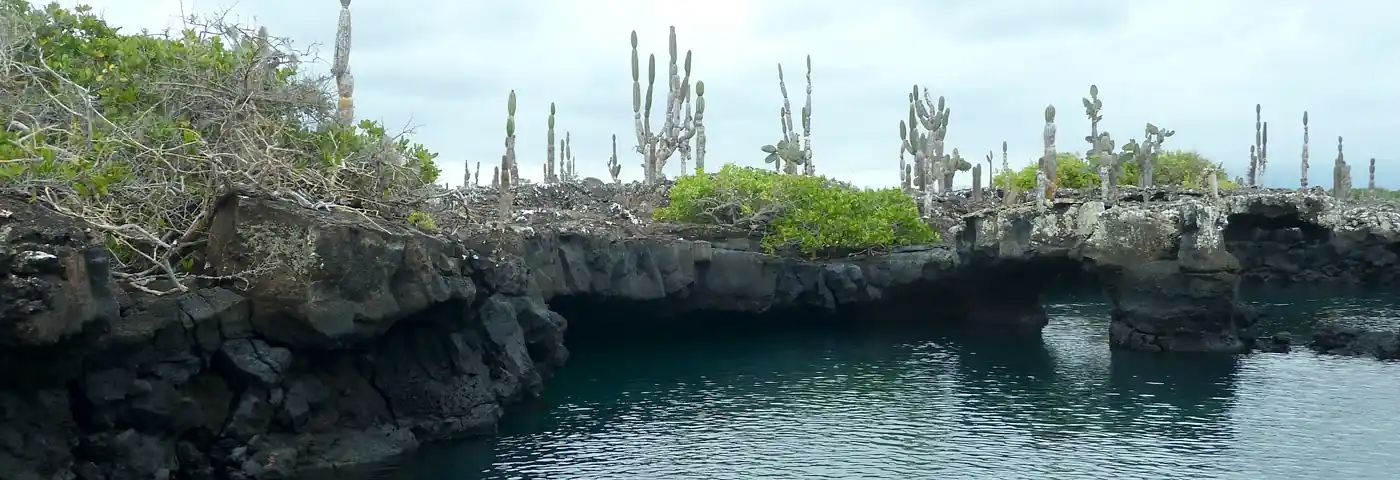
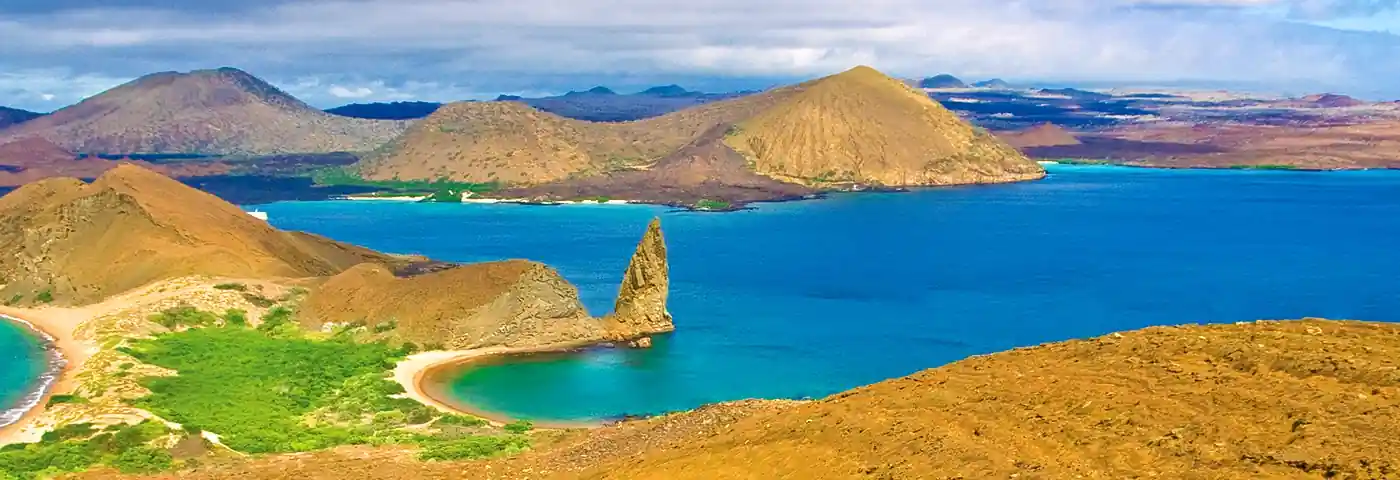
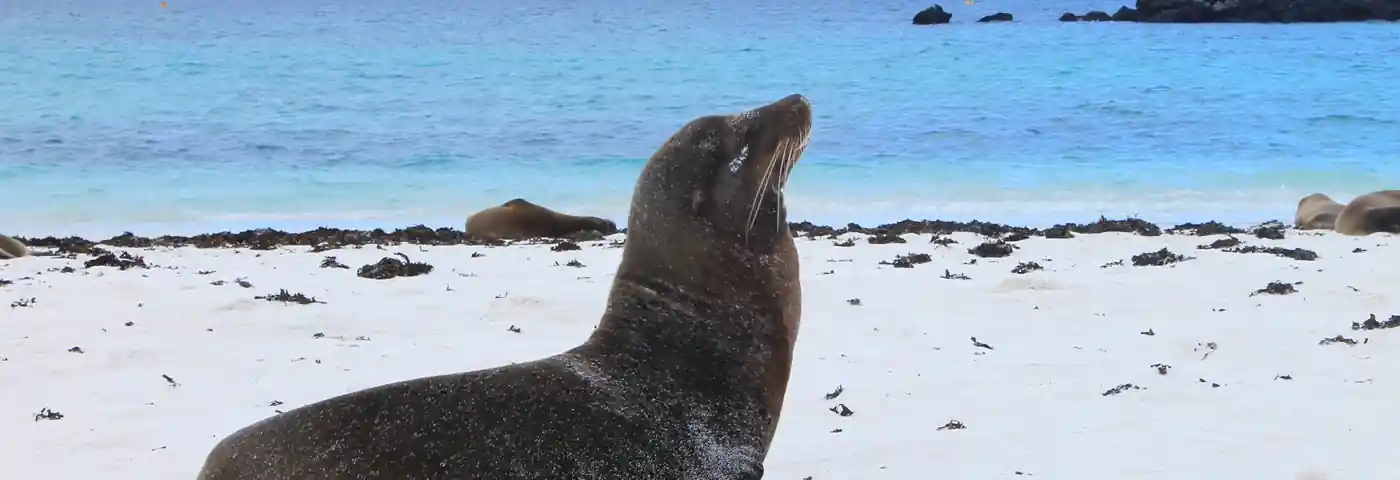
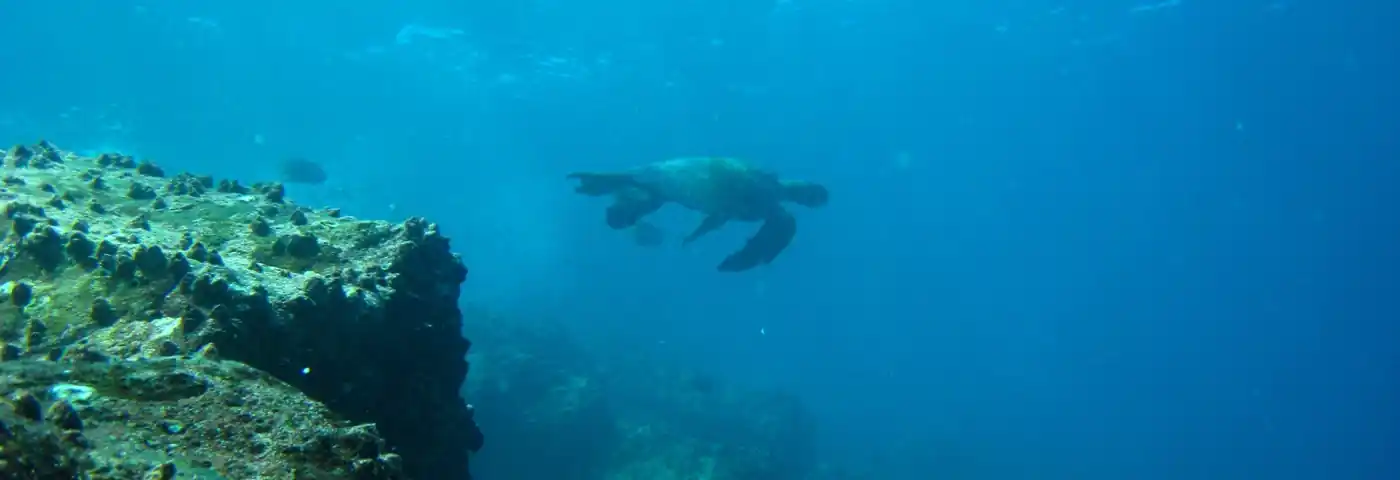

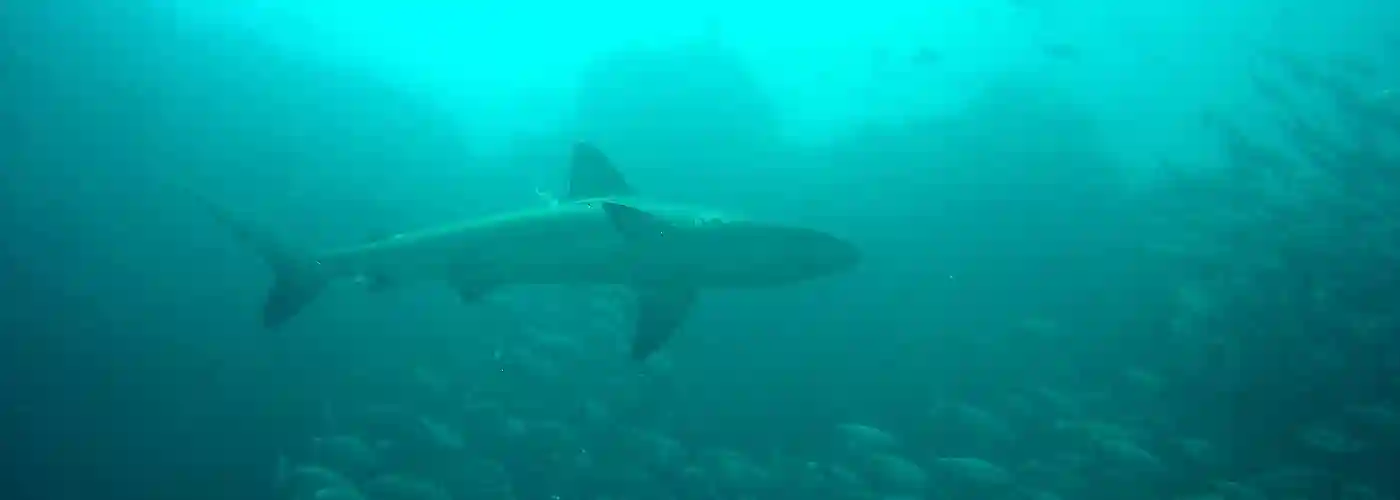
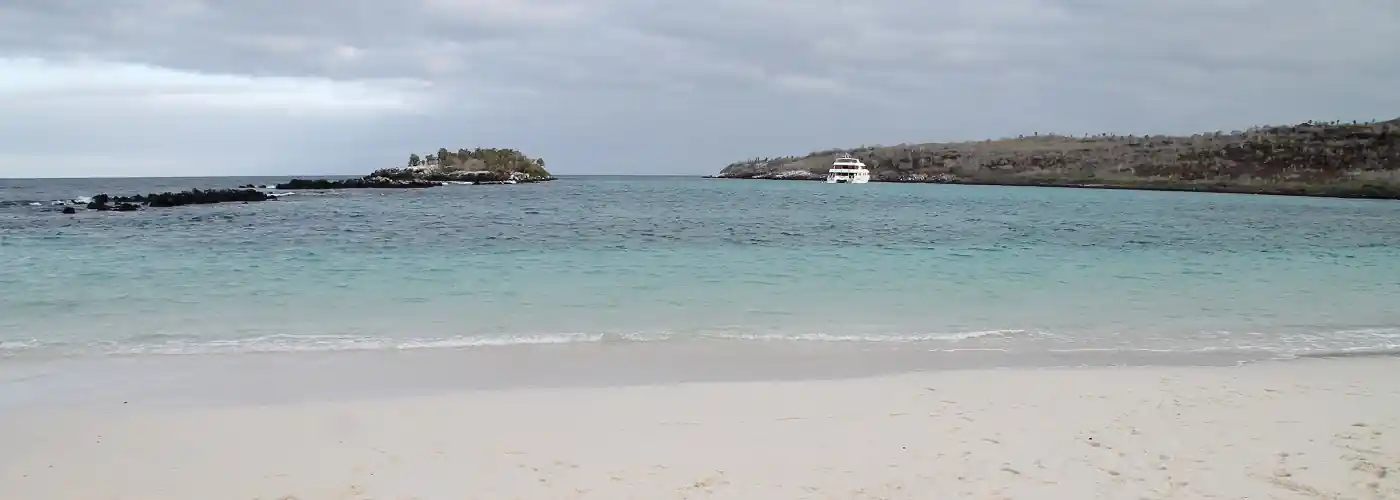
- 8 days
